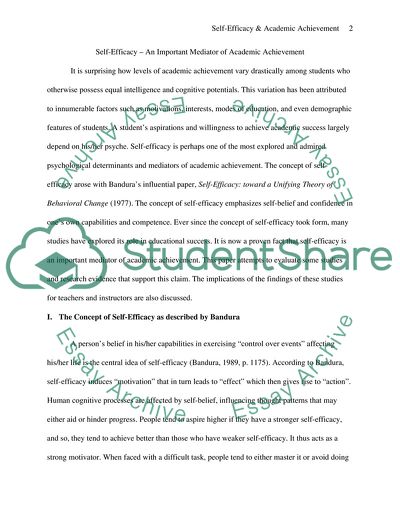Cite this document
(The Influence of Self-Concept on Self-Efficacy Essay Example | Topics and Well Written Essays - 1750 words - 1, n.d.)
The Influence of Self-Concept on Self-Efficacy Essay Example | Topics and Well Written Essays - 1750 words - 1. https://studentshare.org/psychology/1758002-self-efficacy-and-academic-achievement
The Influence of Self-Concept on Self-Efficacy Essay Example | Topics and Well Written Essays - 1750 words - 1. https://studentshare.org/psychology/1758002-self-efficacy-and-academic-achievement
(The Influence of Self-Concept on Self-Efficacy Essay Example | Topics and Well Written Essays - 1750 Words - 1)
The Influence of Self-Concept on Self-Efficacy Essay Example | Topics and Well Written Essays - 1750 Words - 1. https://studentshare.org/psychology/1758002-self-efficacy-and-academic-achievement.
The Influence of Self-Concept on Self-Efficacy Essay Example | Topics and Well Written Essays - 1750 Words - 1. https://studentshare.org/psychology/1758002-self-efficacy-and-academic-achievement.
“The Influence of Self-Concept on Self-Efficacy Essay Example | Topics and Well Written Essays - 1750 Words - 1”. https://studentshare.org/psychology/1758002-self-efficacy-and-academic-achievement.


